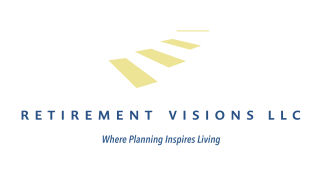
6 Things You Must Know About Your 401(k) Plan
401(k) is the most common employer-sponsored retirement plan, and contributing money to it can be a smart way to save up for your future financial goals. There’s a lot of moving parts to a 401(k) plan though, so it’s important to understand the benefits, limits and rules associated with your plan in order to ensure you’re on the right path to your goals. Here are the top 6 things you should know about your 401(k).
Investing Your 401(k) Money
How you distribute your money is critical to its long-term growth, and your investment strategy will change over time. This is why it’s important to have some goals in mind when you start investing your money, whether they be long-term goals or ones you can achieve earlier in life. Being younger allows you to invest more aggressively, and more of your invested money could go in stock funds. As you near retirement though, a smaller share of money would be invested in stock funds, and more to bond funds as they’re more protected.
Rollover
If you’re switching jobs, you might have some questions about what happens to your 401(k) plan. you typically have four options: leave the money in your old employer’s plan, roll into your new plan, place it in an IRA, or withdraw the balance. In order to decide whether to keep it at the old job or transfer it to the new 401(k) you should compare expenses. Every plan has different charges and you wouldn't want to move from a lower cost plan to a higher one. One benefit of transferring the old plan is that you can borrow from your active plan not the old one. Another benefit is consolidation, less paperwork and accounts to keep track of. If you change address, the old account plan needs to be able to find you or the account can be considered "abandoned". Don't let that happen. What people find makes the most sense is to transfer your existing funds to a rollover IRA brokerage account that offers investment options, such as no load, low-expense index funds. If you withdraw your money or you get sent a check for your account balance, there’s a 60-day window from the time you receive it to roll it into an IRA, after that you’ll have to pay penalties. So be sure to educate yourself or talk to an advisor about options to best rollover your plan.
Roth 401(k)
Unlike traditional 401(k), money contributed to a Roth 401(k) is considered after-tax, which means your money will be allowed to grow tax-free for the life of the account. Any contributions your employer matches will be made toward your traditional 401(k) though, as the employer portion will not be tax-free in retirement.
Contribution Limits are Adjusted Regularly
The amount of money you can contribute to your plan are regularly adjusted higher for inflation ever few years, so it’s important to follow these fluctuations if you decide to adjust your contribution. if you are 50 or older, you’re allowed a “catch-up contribution”, so along with your contributions and employer matching contributions, you can be on a good path for your future financial goals.
Employer-Matching Contributions
Some employers offer a 401(k) match as part of their company benefit package. The employer’s contribution is a certain percentage of an employee’s salary, a common formula is to match 50% of employee contributions up to the first 6% of salary. Employer-matching contributions is quite the rewarding benefit, as they are providing you the opportunity to save for your retirement.

